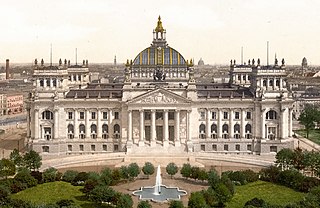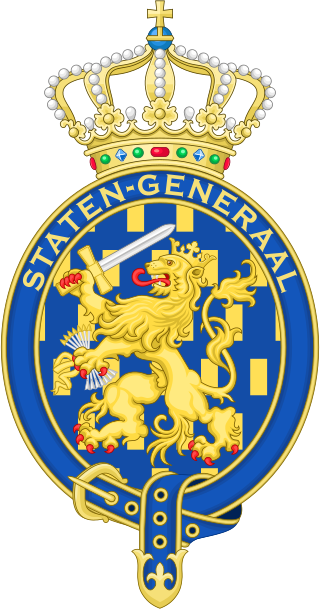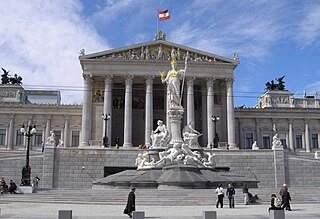
Naturalization is the legal act or process by which a non-national of a country acquires the nationality of that country after birth. The definition of naturalization by the International Organization for Migration of the United Nations excludes citizenship that is automatically acquired or is acquired by declaration. Naturalization usually involves an application or a motion and approval by legal authorities. The rules of naturalization vary from country to country but typically include a promise to obey and uphold that country's laws and taking and subscribing to an oath of allegiance, and may specify other requirements such as a minimum legal residency and adequate knowledge of the national dominant language or culture. To counter multiple citizenship, some countries require that applicants for naturalization renounce any other citizenship that they currently hold, but whether this renunciation actually causes loss of original citizenship, as seen by the host country and by the original country, will depend on the laws of the countries involved.
Jus sanguinis is a principle of nationality law by which nationality is determined or acquired by the nationality of one or both parents. Children at birth may be nationals of a particular state if either or both of their parents have nationality of that state. It may also apply to national identities of ethnic, cultural, or other origins. Citizenship can also apply to children whose parents belong to a diaspora and were not themselves citizens of the state conferring citizenship. This principle contrasts with jus soli, which is solely based on the place of birth.

German nationality law details the conditions by which an individual is a national of Germany. The primary law governing these requirements is the Nationality Act, which came into force on 1 January 1914. Germany is a member state of the European Union (EU) and all German nationals are EU citizens. They have automatic and permanent permission to live and work in any EU or European Free Trade Association (EFTA) country and may vote in elections to the European Parliament.

Dutch nationality law details the conditions by which a person holds Dutch nationality. The primary law governing these requirements is the Dutch Nationality Act, which came into force on 1 January 1985. Regulations apply to the entire Kingdom of the Netherlands, which includes the country of the Netherlands itself, Aruba, Curaçao, and Sint Maarten.

The primary law governing nationality of Portugal is the Nationality Act, which came into force on 3 October 1981. Portugal is a member state of the European Union (EU) and all Portuguese nationals are EU citizens. They are entitled to free movement rights in EU and European Free Trade Association (EFTA) countries and may vote in elections to the European Parliament.

Austrian nationality law details the conditions by which an individual is a national of Austria. The primary law governing these requirements is the Nationality Law, which came into force on 31 July 1985.

Norwegian nationality law details the conditions by which an individual is a national of Norway. The primary law governing these requirements is the Norwegian Nationality Act, which came into force on 1 September 2006. Norway is a member state of the European Free Trade Association (EFTA) and the Schengen Area. All Norwegian nationals have automatic and permanent permission to live and work in any European Union (EU) or EFTA country.

Icelandic nationality law details the conditions by which an individual is a national of Iceland. The primary law governing these requirements is the Icelandic Nationality Act, which came into force on 1 January 1953. Iceland is a member state of the European Free Trade Association (EFTA). All Icelandic nationals have automatic and permanent permission to live and work in any European Union (EU) or EFTA country.

Hungarian nationality law is based on the principles of jus sanguinis. Hungarian citizenship can be acquired by descent from a Hungarian parent, or by naturalisation. A person born in Hungary to foreign parents does not generally acquire Hungarian citizenship. A Hungarian citizen is also a citizen of the European Union.

The Swiss people are the citizens of the multi-ethnic Swiss Confederation (Switzerland) regardless of ethno-cultural background or people of self-identified Swiss ancestry.

Turkish nationality law is based primarily on the principle of jus sanguinis. Children who are born to a Turkish mother or a Turkish father are Turkish citizens from birth. The intention to renounce Turkish citizenship is submitted in Turkey by a petition to the highest administrative official in the concerned person's place of residence, and when overseas to the Turkish consulate. Documents processed by these authorities are forwarded to the Ministry of Interior (Turkey) for appropriate action.

Singapore nationality law details the conditions by which a person holds Singapore nationality. The primary law governing nationality requirements is the Constitution of Singapore, which came into force on 9 August 1965.

Bulgarian nationality law is governed by the Constitution of Bulgaria of 1991 and the citizenship law of 1999.

Danish nationality law is governed by the Constitutional Act and the Consolidated Act of Danish Nationality. Danish nationality can be acquired in one of the following ways:

The Nationality, Immigration and Asylum Act 2002 is an Act of the Parliament of the United Kingdom. It received royal assent on 7 November 2002.

Tanzanian nationality law is regulated by the Constitution of Tanzania, as amended; the Tanzania Citizenship Act, and its revisions; and various international agreements to which the country is a signatory. These laws determine who is, or is eligible to be, a national of Tanzania. The legal means to acquire nationality, formal legal membership in a nation, differ from the domestic relationship of rights and obligations between a national and the nation, known as citizenship. Nationality describes the relationship of an individual to the state under international law, whereas citizenship is the domestic relationship of an individual within the nation. Commonwealth countries, including Tanzania, often use the terms nationality and citizenship as synonyms, despite recognising their legal distinction and the fact that they are regulated by different governmental administrative bodies. For much of Tanzania's history racist policy curtailed domestic rights and nationality. Tanzanian nationality is typically obtained under the principle of jus soli, i.e. by birth in the territory, or jus sanguinis, i.e. by birth in Tanzania or abroad to parents with Tanzanian nationality. It can be granted to persons with an affiliation to the country, or to a permanent resident who has lived in the country for a given period of time through naturalisation.

Thai nationality law includes principles of both jus sanguinis and jus soli. Thailand's first Nationality Act was passed in 1913. The most recent law dates to 2008.
A Beibehaltungsgenehmigung is a certificate issued by the German Federal Government in accordance with Section 25(2) of the Nationality Law.
Antiguan and Barbudan nationality law is regulated by the 1981 Constitution of Antigua and Barbuda, the various Antigua and Barbuda Citizenship Acts, the Millennium Naturalisation Act of 2004, and various British Nationality laws. These laws determine who is, or is eligible to be, a national of Antigua and Barbuda. Antiguan and Barbudan nationality is typically obtained either on the principle of jus soli, i.e. by birth in Antigua and Barbuda; or under the rules of jus sanguinis, i.e. by birth abroad to a parent with Antiguan or Barbudan nationality. It can also be granted to persons with an affiliation to the country, by investment in the country's development, or to a permanent resident who has lived in the country for a given period of time through naturalisation. Nationality establishes one's international identity as a member of a sovereign nation. Though it is not synonymous with citizenship, rights granted under domestic law for domestic purposes, the United Kingdom, and thus the commonwealth, has traditionally used the words interchangeably.

Liechtensteiner nationality law details the conditions by which an individual is a national of Liechtenstein. The primary law governing these requirements is the Law on the Acquisition and Loss of Citizenship, which came into force on 4 January 1934.



















